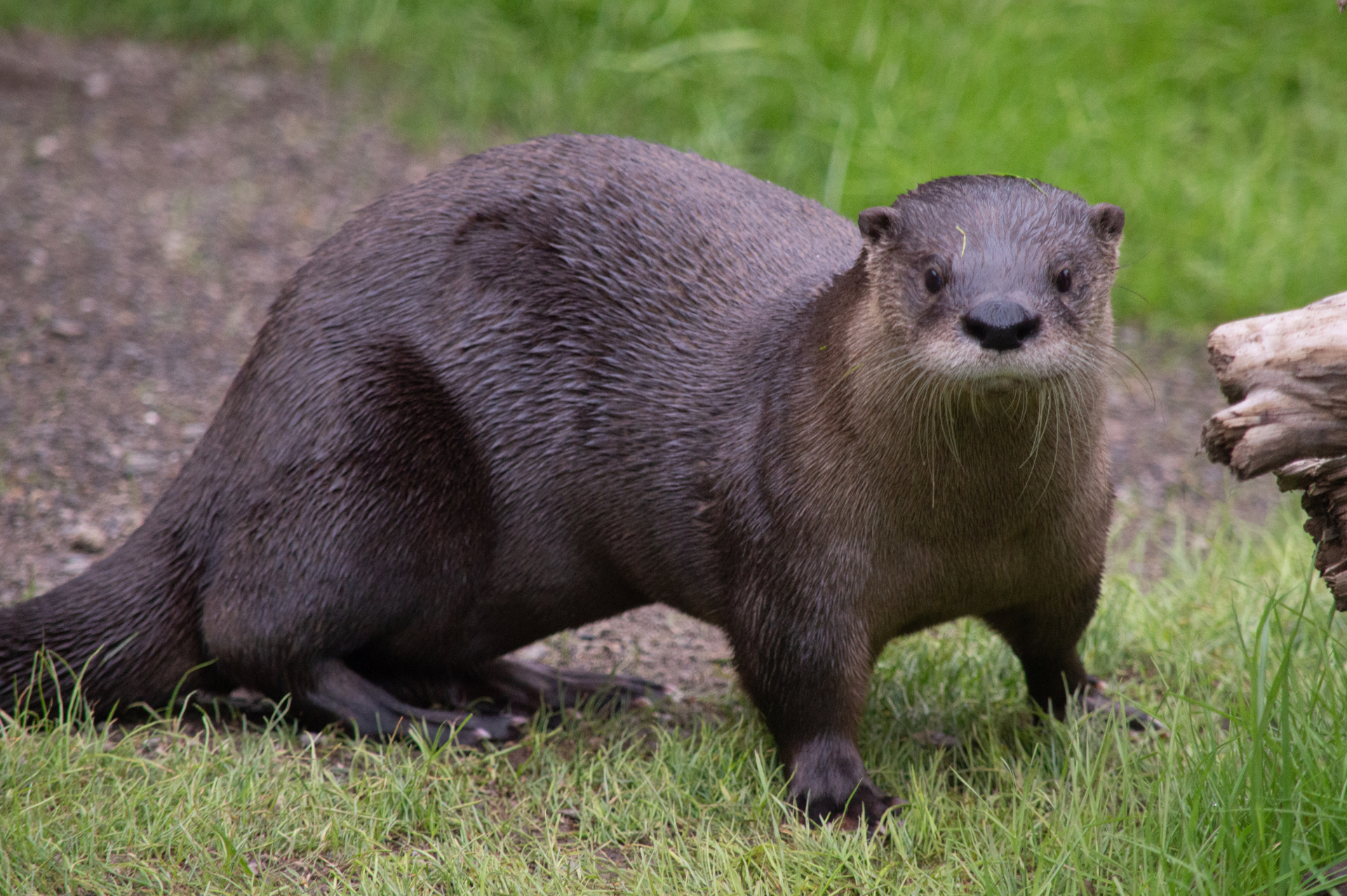River Otter

Basic Information:
Scientific Name: Lontra canadensis
Habitat: River Otters are found in the waterways and coastal areas of North America including Canada, the Pacific Northwest, the Atlantic states, and the Gulf of Mexico.
Diet: River Otters are known to eat a wide variety of foods including fish, frogs, crayfish, turtles, insects, small mammals, and more.
Size: 2 to 5 feet long
Weight: 20 to 28 pounds
Lifespan: 12.3 years according to AZA Species Survival Statistics
Distribution Map:
I.U.C.N. Conservation Status:

What does this mean?
Least Concern – a species determined by the International Union for Conservation of Nature (I.U.C.N.) to be pervasive, abundant, and thriving.
Our River Otters:
Briar (Female) – Born February 5, 2021
Lily (Female) – Born February 15, 2021
About River Otters:
River Otters are semi-aquatic mammals found exclusively on North American coasts and waterways. They are adept navigators in the water as well as on land and can transition from one to the other with ease. This is thanks in part to their webbed paws for swimming and walking as well as their water-repellent fur. They are predators and are known to eat quite a variety of things from fish to amphibians to small turtles and small mammals. They are also commonly known for being playful and energetic. They often wrestle, chase, and swim with other otters in the wild. This is one method that these animals can learn how to hunt for food and even fight for survival if the necessity arises.
Did You Know?!
- River Otters are capable of holding their breath for 8 minutes.
- River otters are very vocal animals and can make a variety of sounds including chirps, chuckles, whistles, and screams.
- Otters are the largest species in the weasel (or Mustelidae) family
- River otters have a set of 36 teeth that are powerful enough to crush shells and some bones.
- River otters can dive to a depth of 60 feet and are capable of swimming 7 miles per hour.
- River otters are a type of indicator species because they are one of the first animals in a habitat to react to signs of pollution. Consequently, if river otters are spotted in an area near you, that means that the water is most likely clean and healthy.
- While river otters spend a good amount of time in the water, they actually spend two-thirds of their time on land.
